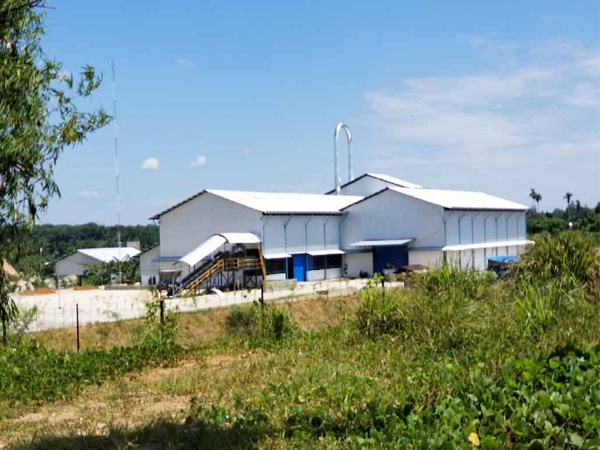Current situation of tapioca starch production in indonesia
Indonesia's climate is suitable for growing tapioca, making it the fourth largest producer of tapioca in the world. Indonesia harvests nearly 20 million tons of tapioca tubers from 1.93 million hectares per year. From 1961 to 2011, the total output of tapioca in Indonesia showed a fluctuating upward trend, while the area of cassava planting showed a fluctuating downward trend. Indonesian cassava yield is mainly concentrated in Lampung, East Java, Central Java, West Java (state), and the proportion of the top five provinces (states) is 79.9% ~ 82.7%. In Indonesia, cassava has 46.4% ~ 46.6% of the consumption, and "other" uses (related to tapioca starch production in indonesia)33.7% ~ 43.3% of cassava is the first choice.
 Cassava starch
Cassava starch
As the world's second-largest producer of tapioca starch, second only to Thailand, the total tapioca starch production in indonesia of the existing tapioca industry is not less than 2 million tons per year, mainly concentrated in Lampung Province (over 80%). However, this is not enough to supply the domestic market. Most tapioca tubers are mainly used in the food and tapioca starch industry. The tapioca starch production in indonesia is mainly used for domestic consumption. Due to the large domestic market demand, Indonesia still needs to import about 200,000 tons of tapioca starch (mainly from Thailand) from abroad. The domestic consumption structure is roughly as follows: the food industry accounts for about 60%, mainly used for dry bread, biscuits, and sweeteners; the non-food industry accounts for about 40%, and is mainly used for the processing of modified starch and sorbitol.
 Cassava starch production process
Cassava starch production process
According to the equipment processing system and drying system used in the starch extraction stage, tapioca starch production in indonesia can be divided into three categories: (1) the former traditional factory, (2) the semi-traditional factory, and (3) the modern factory. The first type of tapioca starch processing machinery is the use of a tabling or sedimentation system in the starch extraction stage; and the product is dried by drying in the sun. The second type of processing equipment uses the same system in the starch extraction stage, but flash drying system is used in the final drying stage. The third type of starch extraction equipment employs a centrifugal dewatering system and is combined with a flash drying system for tapioca starch production in indonesia. The typical production capacities of the first, second and third categories are separately 2-10 tons per day, 50-100 tons per day and more than 100 tons per day. The flash drying system of the second type of plant uses a mixture of palm cernel shell and coal, while the third type of plant is completely fuelled by coal. Some flash dry fuels are replaced by biogas produced by wastewater treatment plants. The development of control systems that utilize biogas for drying operations has great potential. Outside of Lampung province, namely, Sulawesi, Bangka Island and Kalimantan, there is also a great opportunity to develop new factories for tapioca starch production in indonesia.
 Tapioca starch production plant
Tapioca starch production plant
In Indonesia, cassava is not yet a superior product, and its contribution to national income is negligible, so the government ignores its importance. In addition, the Indonesian Ministry of Agriculture does not consider cassava to be an important commodity. Marva Daoud Ipalahin, the president of the Indonesian Cassava Society, however, has worked hard to support the production of the tapioca industry, including working with the Ministry of Industry to develop the industry of tapioca starch production in indonesia. He believes that Indonesia has come to develop agriculture-based industries because agriculture is Indonesia's strengths. At the same time, on November, 2011, the Indonesian Minister of Industry hosted the opening ceremony of an international seminar in Nusa Dua, Bali. who said "We must immediately produce diversified products for cassava. and we should obtain surplus value from domestic industries." He believes that Indonesia should have a cassava processing industry that can produce cassava exports. Cassava can not only be developed into a food material, but also can be refined into bioethanol fuel.

-
 Cel/WhatsApp: +8613526615783
Cel/WhatsApp: +8613526615783
-
 Phone: +86 371 5677 1822
Phone: +86 371 5677 1822
-
 E-mail: market@doingmachinery.com
E-mail: market@doingmachinery.com
-
 Address: Room 1408,14th Floor,Building 9,No.133 Yaozhai Road,Jinshui District,Zhengzhou City,Henan Province,China
Address: Room 1408,14th Floor,Building 9,No.133 Yaozhai Road,Jinshui District,Zhengzhou City,Henan Province,China




